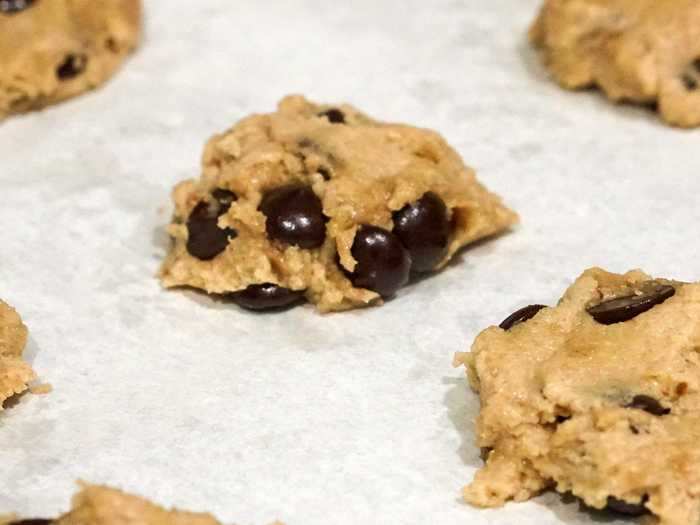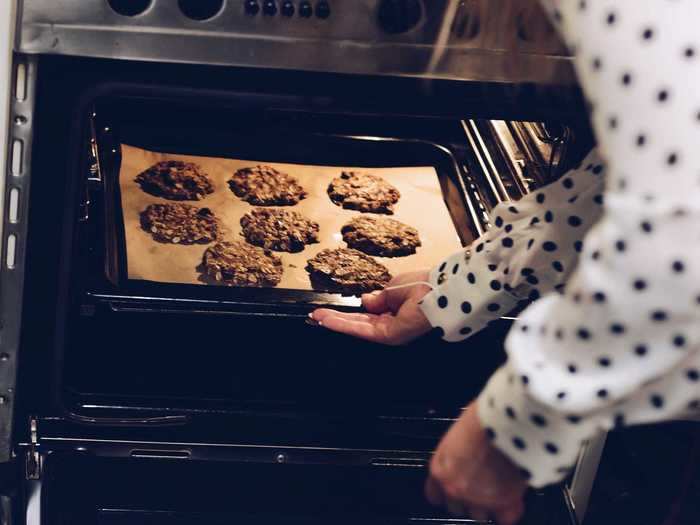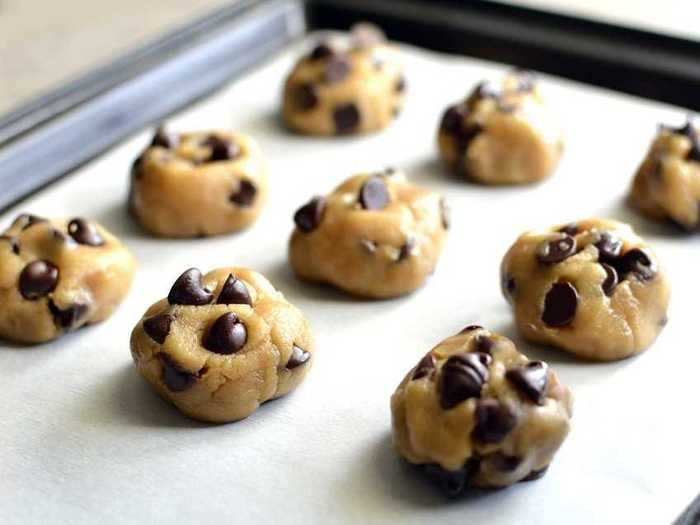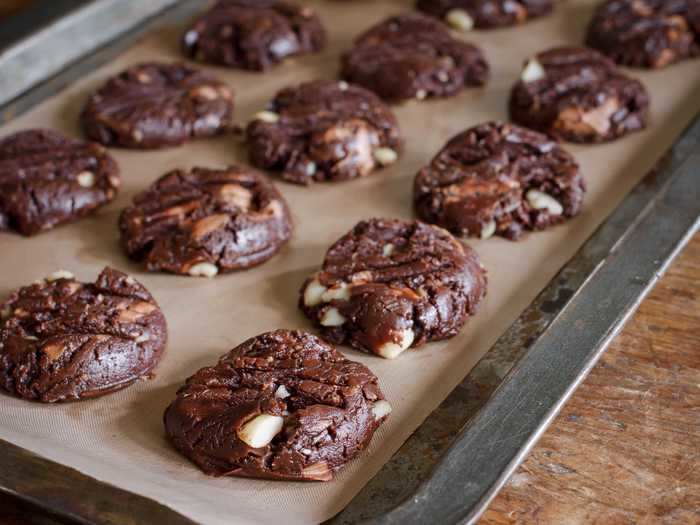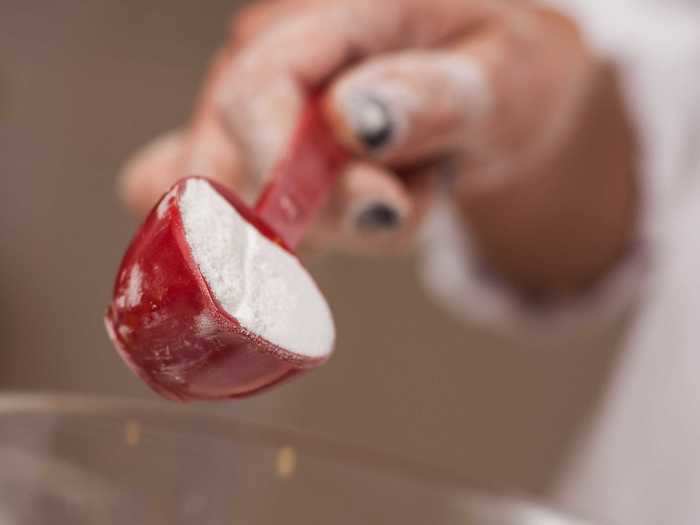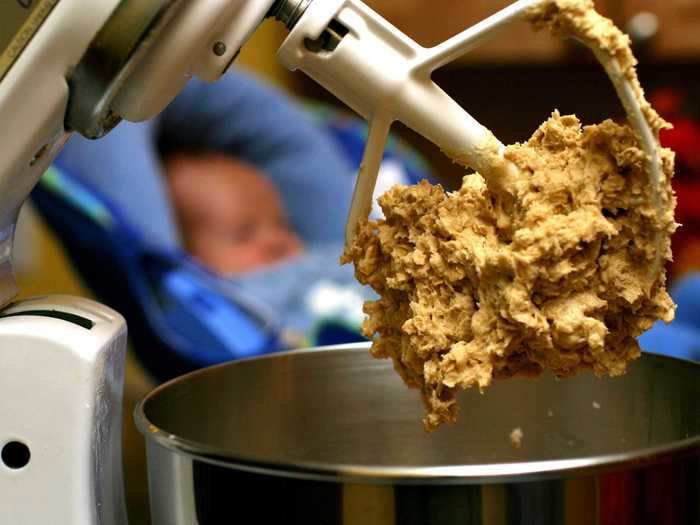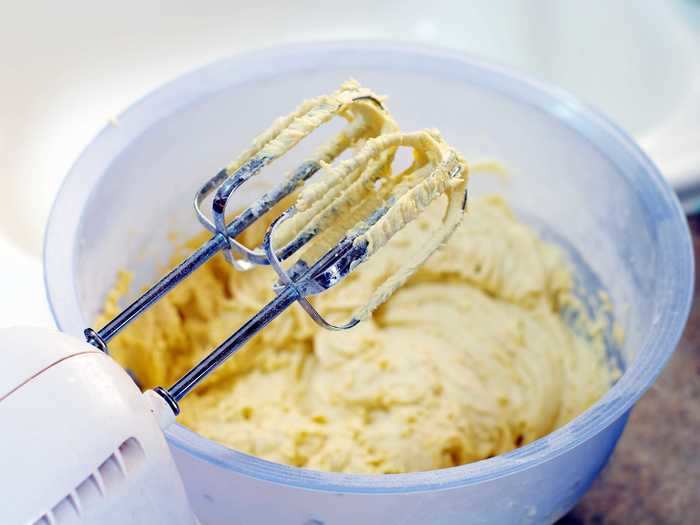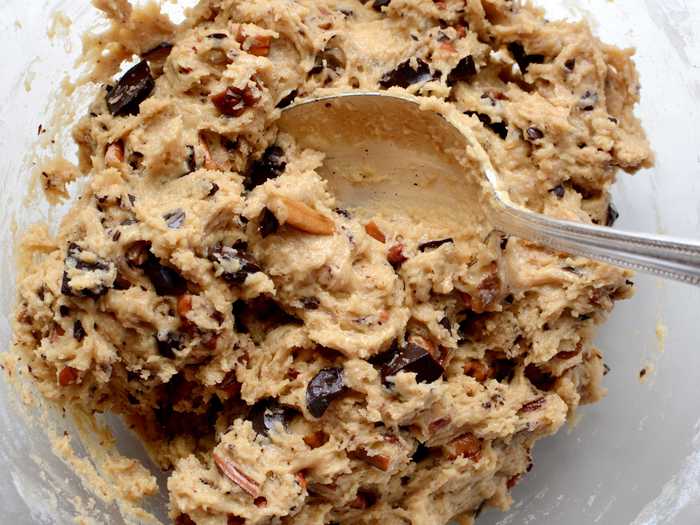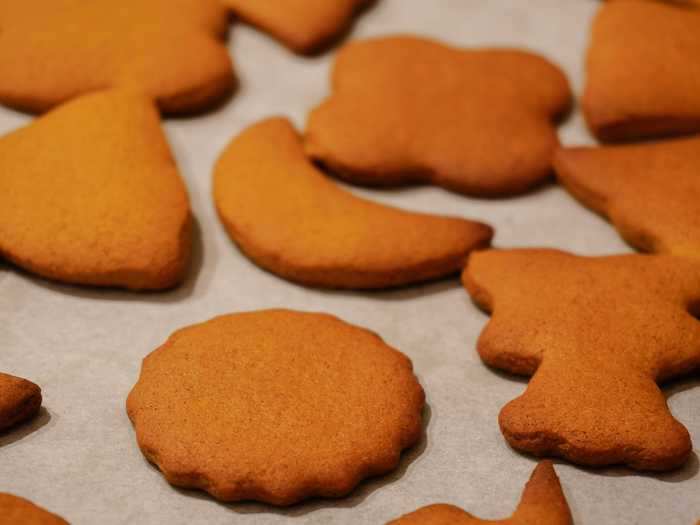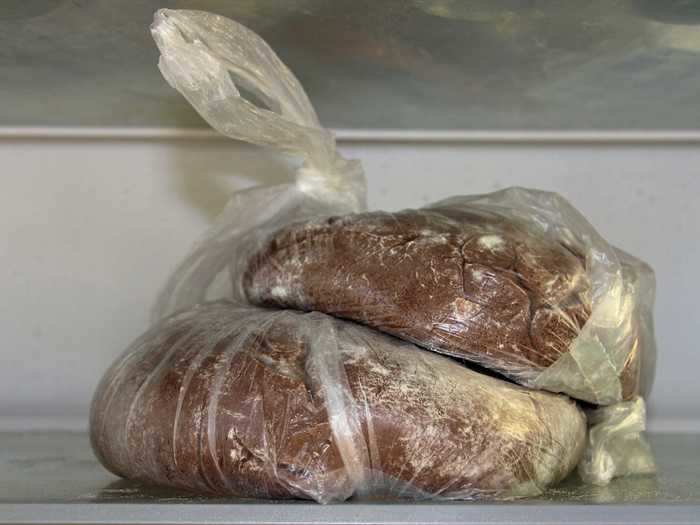A few common baking mistakes could be ruining your cookies.Shutterstock
- Making cookies isn't always easy, and a few common mistakes could be messing with your results.
- Sometimes forgetting to chill the dough can cause your cookies to spread too much in the oven.
- Opening the oven door too many times can make it tough for your cookies to evenly bake.
- Visit Insider's homepage for more stories.
Making beautiful and delicious cookies isn't always easy, but knowing a few simple tricks can help you improve your baked goods.
Insider spoke to Courtney Cowan, founder of Milk Jar Cookies, about some of the more common cookie mistakes that amateur bakers make and how to fix them for better results.
Read the original article on
Insider
Trying to adapt a standard cookie recipe to accommodate a dietary restriction won't always work.
There are plenty of tweaked recipes out there.
Shutterstock
There's nothing saying you can't experiment in the kitchen, but baking, unlike cooking, is more of an exact science. Turning a standard recipe into a vegan or gluten-free recipe isn't as simple as swapping one ingredient for another.
For example, gluten-free cookie recipes often call for additional ingredients like xanthan gum. Swapping out sugar for an alternative like applesauce or honey isn't a one-to-one ratio either.
There is a cookie recipe for nearly every dietary restriction on the internet, so it may be easier to follow those and adjust them to your liking than to experiment on your own.
Read More:
Opening the oven door too many times will make it harder for your cookies to bake.
Keep the oven closed.
Shutterstock
Even though it's tempting, Cowan said, you should avoid checking on your cookies by opening the oven door.
"Opening the oven door allows the heat to escape, which can affect how your cookies bake. If you want to check on your cookies while they bake, try to stick with using the oven light," she told Insider.
You might burn your cookies if you grease your baking sheet with butter.
Try using parchment paper.
Shelby L. Bell/Flickr
Most pastry chefs, including Cowan, line their baking sheets with parchment paper when they bake cookies.
"If you don't have [parchment paper] in your kitchen, I would recommend coating them with a cooking spray," Cowan said. " Using butter to grease your cookie sheet can cause the bottoms of your cookies to burn."
If you're using dark-colored baking sheets, don't forget to adjust your baking time.
Sometimes the sheet you use means you must adjust the bake time of your cookies.
Getty Images
Using darker colored baking sheets isn't a mistake, per se, but it can be if you don't adjust your baking times accordingly.
"Darker baking sheets will make your cookies bake faster," Cowan told Insider. "So you will just need to make small adjustments to your temperature and baking time."
She added, "If using dark baking sheets, I would recommend decreasing your temperature by 25 degrees Fahrenheit and your bake time by four minutes. You can always add a minute or two until they are baked to your liking, but start with less."
Using stale baking powder and soda might make your cookies fall flat.
It doesn't last forever.
Flickr/Bianca Moreas
Using expired or stale baking soda or baking powder is a really common mistake because so many amateur chefs forget that their baking soda has been in the fridge for years.
Cowan told Insider that an unopened container of baking powder or soda is good for about two years, but opened cans should be switched out every six months.
"Baking powder and soda are the agents that lead the chemical reaction of the baking process. When they are stale, they are less potent, which causes your cookies to not bake properly and end up way too dense," she explained.
Incorporating ingredients into the dough in the wrong order can entirely throw off your cookies.
Follow the steps closely.
AP/Larry Crowe
It's not just enough to mix the dough for the correct amount of time — the order that you incorporate ingredients into the dough matters.
Many home chefs are guilty of throwing all the cookie ingredients into a bowl at once, but Cowan said you should always mix wet ingredients first and then slowly incorporate the dry ingredients.
"I recommend mixing the wet ingredients together just until there are small chunks of butter remaining," Cowan told Insider. She said she then slowly incorporates the dry ingredients into the dough in three parts.
"With each addition of dry ingredients, mix the dough just until all of the flour has been fully incorporated," she added.
Under-mixing the dough can lead to some unpleasant clumps of ingredients in your bookies.
You need it to be just right.
Flickr/fuse
Under-mixing the dough can be just as damaging as over-mixing as it can result in pockets of dry ingredients presenting in the final product.
You can stop mixing when your dough looks uniform, paying extra attention to the dry ingredients which are the biggest culprits in the under-mixing battle.
Unless you want crispy cookies, avoid overmixing your dough.
Stop mixing when your ingredients are just combined.
Bianca Moraes / Flickr
"Overmixing your dough will result in flatter, crispier cookies," Cowan said. If you overmix the dough, you will end up aerating the dough (adding air) which causes the cookies to rise and then fall, leaving you with flat cookies.
So how do you know when to stop mixing? Pastry chef Nicole Weston wrote in her blog Baking Bites that you should stop mixing once there are no more streaks of flour in your mixing bowl.
When it comes to butter temperature, listen to your recipe unless you want to experiment with your dough.
Pay attention to the type of cookies you're making.
cheeseslave / Flickr
Common baking knowledge seems to dictate that you should always cook with room-temperature butter, but Cowan says there's no "wrong" butter temperature.
"Different temperatures of butter just produce different types of cookies," she told Insider. "There are a lot of recipes out there that specifically call for melted butter and other recipes want the butter to be room temperature."
The only rule here is to pay attention to whatever butter temperature your specific recipe calls for, whether it's cold, room temperature, or softened.
Overcrowding your pan can lead to some wonky cookies.
Give cookies lots of room to spread.
NekoJoe/Flickr
It's important not to overcrowd the pan with cookie dough or place the dough balls too close together.
Not only will this cause the cookies to spread into one another, creating bizarrely shaped cookies, but also Cowan said that "overcrowding a baking sheet will result in flatter cookies as they are sharing the heat with too many [other cookies]."
Invest in a second baking sheet if you're guilty of cramming two dozen cookies onto a single sheet.
By not chilling your dough, you could be messing with the texture of your cookies.
It should be popped in the fridge.
Shutterstock
"Cookie dough likes to rest a bit so all the ingredients have time to mingle, so letting it chill in the fridge for up to 24 hours before baking allows for this to happen," Cowan explained. "Be sure to plastic wrap it tightly to keep the dough from drying out."
Chilling the dough a necessary step in the cooking baking routine, Cowan said, and it's how you create crunchy cookies with gooey insides.
"Putting cold dough in the hot oven creates that crisp outer layer that makes biting into the cookie so delightful," she added.

